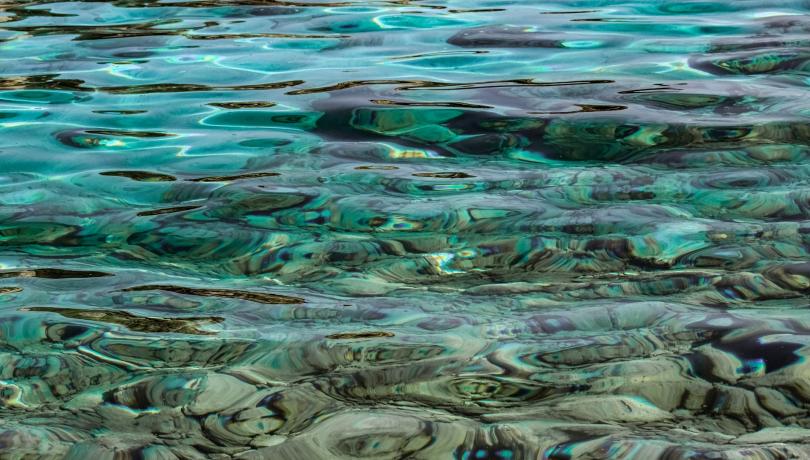According to a new study led by the ICM-CSIC, the lockdown led to a reduction in microorganisms, which contributed to a more transparent, but also less productive water.

A new study led by the Institut de Ciències del Mar (ICM-CSIC) recently published in the prestigious journal Science of the Total Environment has confirmed that the lockdown caused by COVID-19 contributed to improve the water quality of the Mediterranean Sea, which could explain the sightings of some species that are rarely observed under normal conditions.
According to the paper, the increase in water quality is mainly observed through a lower concentration of chlorophyll, an essential phytoplankton pigment that is often correlated with nutrient availability.
This decrease is probably due to lower atmospheric nitrogen loading caused by reduced vehicle traffic, lower sewage flow due to reduced visitor numbers, and decreased fishing activity, which stopped during the lockdown period.
A cleaner but less productive sea
These factors resulted in a cleaner and more transparent Mediterranean, but also less productive, leading to a decline in some microbial groups, in particular phytoplankton. The fact is that nitrogen inputs, even though they are pollutants, are a source of nutrients for phytoplankton, whose abundance increases thanks to them, which in turn means more food for the animals that feed on them.
Thus, the decrease in pollution also led to a less nutrient-rich and less productive sea. As the research team explains, if extended, this oligotrophic -low chlorophyll concentration- situation could have affected fisheries.
"Oligotrophy could have cascading consequences within the marine ecosystem, since the microbial groups that decreased as a result of lockdown represent most of the planktonic organisms, which are at the base of the marine food web and support the growth of species at higher levels", explains Maria Montserrat Sala, researcher at the ICM-CSIC and lead author of the study.
Long-term monitoring
To carry out this work, the research team compared data on the abundance, diversity and function of marine microorganisms in water samples from the Bay of Blanes collected during the spring of 2020 with data from samples collected over the previous 15 years in the same place by the Blanes Bay Microbial Observatory, which celebrated its 20th anniversary this year.
This series of data from Blanes Bay is very valuable, as it allows the study of the dynamics of organisms that are considered the largest reservoir of diversity in the biosphere and play a key role in global biogeochemical cycles. It is also one of the longest datasets in the Mediterranean.
"These data allow us to assess both the long-term effects of global change and specific phenomena such as lockdown", states Josep M Gasol, ICM-CSIC researcher and co-author of the article, who regrets that there are no long-term funding mechanisms to carry out more initiatives like this one.
Finally, the authors of the study highlight that, already during the month of June 2020, coinciding with the progressive relaxation of the strict measures, the effects of lockdown on the parameters measured were much lower than during May, which suggests that the impact of the lockdown was short-lived.
This is one of the few studies to have assessed the impact of human lockdown on the seas and oceans, and the only one to have done so by analysing samples taken in situ during the months of lockdown. Moreover, it is the only work to compare data from such an exceptional year as 2020 with a data series as long as that of Blanes.